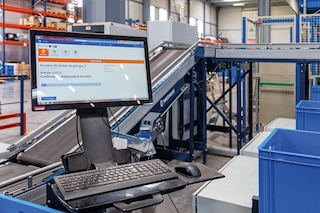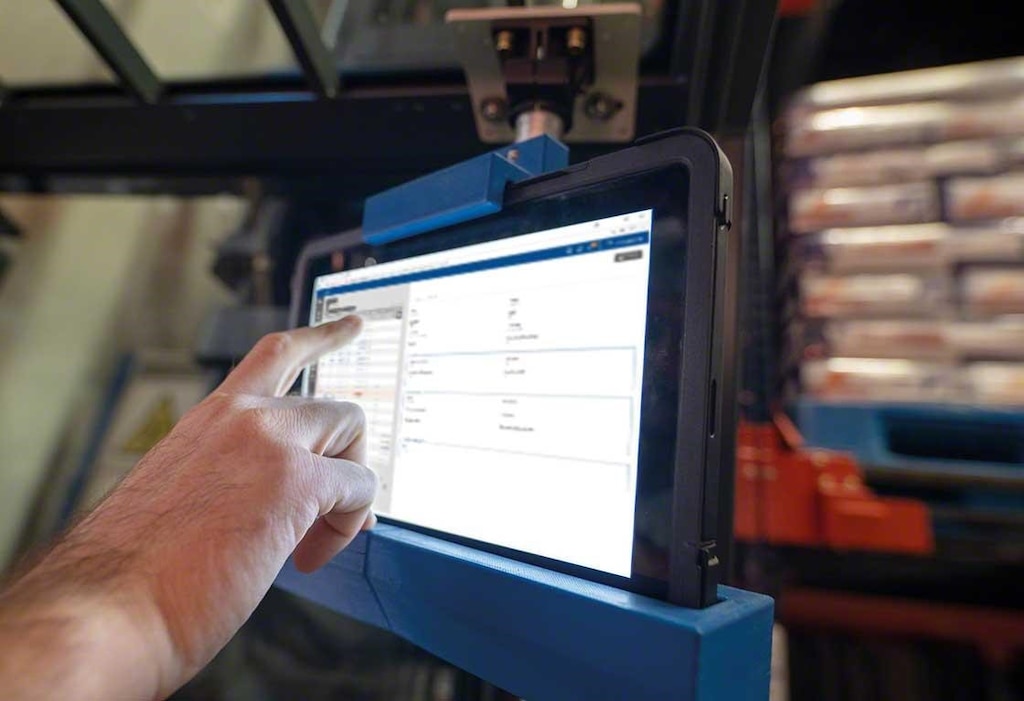
SaaS vs. On-premise: your different WMS purchase options
When selecting a warehouse software, it is essential to take into account the available architectures. You can deploy it in two different ways: the on-premise or the SaaS (Software as a Service) model. These do not relate to the user interface (UI) or the working environment, since in both cases the Easy WMS will have the same look and functionalities. However, what does vary is the way the WMS is installed in your company.
In today's article, we outline the advantages and specificities of each form of on-premise or SaaS deployment to help you reach the right decision for your business.
Differences between On-premise and SaaS architectures
Two options are available for deploying our Easy WMS:
1. Installation as per the on-premise model.
Following the on-premise model, the warehouse management system is installed on a server that is physically located in a company and the licenses to use the WMS are the property of the customer for good.
2. SaaS architecture (Software as a Service)
The Easy WMS roll-out option using Software as a Service (SaaS) works through cloud data storage. The servers belong to the provider (in the case of Easy WMS, to Mecalux). Therefore, the hardware does not need to be housed in a company's premises. In the WMS model with SaaS architecture, the client pays a monthly lease subscription per license, without having to assume the total cost at the beginning.
Factors to consider when choosing SaaS vs. On-premise
How to choose between SaaS and On-premise Before opting for one or the other, ask yourself the following questions:
1. How many licenses do you need? Do you see a lot of seasonal variances?
Within your allocated budget to a WMS deployment project, one of the most relevant elements is the number of licenses. Therefore, the number of users who are going to work with the WMS is fundamental to calculate the needed investment and the variation between deployment via an on-premium vs. SaaS model.
However, you should reflect on one more point: Do you experience very pronounced seasonality in your business? Do your staffing levels fluctuate significantly in different time periods? If the answer is yes, the SaaS model gives greater flexibility to extend or reduce licenses on a monthly basis and is likely an ideal solution for adjusting them around activity peaks where a temporary workforce takes centre stage.
2. Does your company have the capacity to maintain in-house computer systems?
The on-premise model means that the servers that host your warehouse management program are installed directly in your enterprise. This has two direct consequences:
- The control of the info is 100% in your company’s hands.
- At the same time, you must consider that you will need staff to maintain these computer systems and your company will need to absorb the associated costs.
With SaaS, your physical server maintenance vanishes, as this hardware is in the hands of the provider: who is in charge of making the backups and guaranteeing that the servers are always running correctly, troubleshooting any potential incidents.

3. Do you have a decent Internet connection?
We are not talking about a fibre optic connection running at a speed of hundreds of megabytes. In the case of a WMS, minimum amounts of information are sent and received, but it is an important requirement that the network has a low latency, i.e., that it responds in milliseconds so that the operator is not kept standing around waiting in the warehouse.
If the logistics warehouse where the WMS is installed is located in an isolated area with an unstable Internet connection, the logical result is that the WMS responds more quickly by applying the on-premise model, since the servers work locally (although this depends company's local area network (LAN) occupancy).
4. How much do you have to invest?
Although the up-front investment needed is higher than the monthly subscription system, as the years progress, the initial cost drops. It ends up falling below the SaaS model fee. However, a SaaS-based Easy WMS deployment involves a more moderate initial financial commitment. And, depending on the size of the project, the cost can become a key point in making a final decision.
In any case, if you have questions about opting for our Easy WMS using the on-premise or SaaS architecture, please do not hesitate to get in touch: a Mecalux expert will provide you with a breakdown of both budgets and advise you on the best option.
